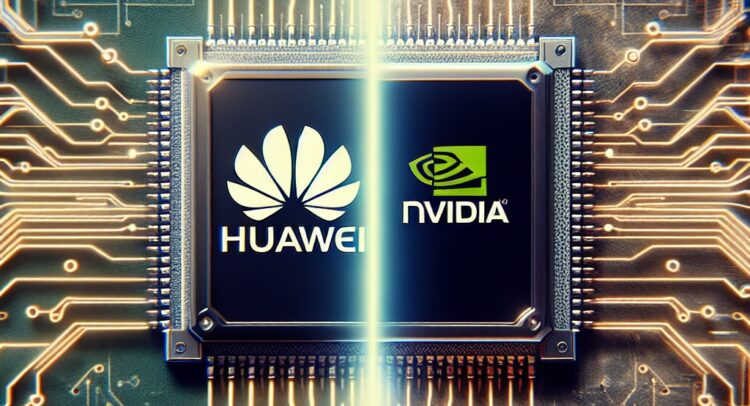Chinese tech giant Huawei’s CEO, Ren Zhengfei, said the company’s artificial intelligence (AI) chips are “currently one generation behind those of their U.S. counterparts,” such as Nvidia (NVDA). However, Huawei is making strategic efforts to boost their performance, he added in a front-page article in the People’s Daily. Ren’s comments come as U.S. and Chinese officials prepare to meet for a second day of trade negotiations in London today.
Don’t Miss TipRanks’ Half-Year Sale
- Take advantage of TipRanks Premium at 50% off! Unlock powerful investing tools, advanced data, and expert analyst insights to help you invest with confidence.
- Make smarter investment decisions with TipRanks' Smart Investor Picks, delivered to your inbox every week.
The CEO also downplayed the impact of stringent export control rules on the export of American-made chips to China. Ren believes that Chinese companies can make advanced chips by relying on chip packaging and cluster computing methods to achieve equivalent performance. He said that Huawei invests roughly $25.07 billion annually in research, with one-third allocated to theoretical research and the rest to product development.
Huawei Remains a Competitive Threat to Nvidia
The U.S. has imposed strict restrictions on the export of Nvidia’s advanced AI chips to China, citing national security concerns. Huawei has also been added to the “Entity List,” which prohibits it from accessing U.S. technologies. Despite these hurdles, Huawei has grown stronger in the Chinese smartphone market and is making notable progress in the AI and electric vehicle software sectors. Ren was modest in acknowledging that the U.S. may have overblown Huawei’s achievements. “Huawei is not that great. We have to work hard to reach their evaluation,” he added.
Ren noted that Huawei’s single chip is still a generation behind those of the U.S. To bridge the gap, the company is resorting to cluster computing, meaning binding multiple chips together to boost efficiency and performance. Its Ascend series of AI chips utilize this technology to compete with Nvidia’s advanced AI chips. For example, Huawei’s AI CloudMatrix 384 system bundles together 384 of Ascend 910C chips to train advanced AI models and is reportedly able to outperform Nvidia’s GB200 NVL72 system in certain areas.
Nvidia Remains a Leader in AI Chip Market
Regardless of Huawei’s efforts to boost its chips’ performance, Chinese tech giants, including Alibaba (BABA), Tencent (TCEHY), and ByteDance have yet to shift the bulk of their orders to its chips. Some of the challenges faced by customers include overheating of hardware and limitations in the software stack. Plus, companies face a high switching cost when transitioning from Nvidia’s Cuda platform to Huawei’s Cann. Moreover, the U.S. has warned that companies using Huawei’s advanced AI chips could face “substantial criminal and administrative penalties.” This threat is also holding back large Chinese firms from adopting Huawei’s chips.
Overall, the situation remains largely in Nvidia’s favor, as long as the U.S. keeps restricting Huawei’s chip usage. Some reports suggest that the Trump administration could ease some chip export restrictions as part of the ongoing U.S.-China trade negotiations, which could prove an additional boost for Nvidia.
Is Nvidia Stock a Good Buy?
Wall Street remains highly optimistic about Nvidia’s long-term stock trajectory. On TipRanks, NVDA stock has a Strong Buy consensus rating based on 35 Buys, four Holds, and one Sell rating. Also, the average Nvidia price target of $172.36 implies 20.8% upside potential from current levels. Year-to-date, NVDA stock has gained 6.2%.

















